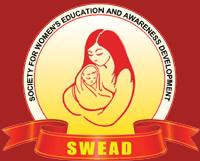Cause Area
Primary Sectors
Secondary Sectors
Financials
-
2023
Total IncomeRs.4,034,413Total ExpensesRs.4,550,443Non Program ExpensesRs.593,536Program ExpensesRs.3,956,907Tip: Click on any value above to exclude it. -
2024
Total IncomeRs.1,692,328Total ExpensesRs.1,213,985Non Program ExpensesRs.159,170Program ExpensesRs.1,054,815Tip: Click on any value above to exclude it.
Geographies Served
Programs
-
Child development
District
Cuddalore
States
Tamil Nadu
Goat for the poor widow
SWEAD organizations play a crucial role in supporting underprivileged communities in India. One such initiative is the provision of goats for poor widows. This program offers an opportunity for these women to generate income and lead a dignified life.
Overall, the provision of goats for poor widows is a noble initiative that helps to uplift underprivileged communities and promote sustainable development.Education for poor Children
Evening classes for Covid victims of poor Dalit and tribal children in Tour target villlages of Cuddalore it is crucial to recognize the significant challenges these communities have faced as a result of the pandemic. With schools closed and limited access to online learning, many children from marginalized groups have fallen behind in their education. -
Women empowerment
District
Cuddalore
States
Tamil Nadu
SWEAD empowers rural women by forming Self Help Groups (SHGs), encouraging savings and credit, and promoting gender equality awareness. We offer training in production and trade skills, facilitating access to loans from financial institutions for starting individual or collective micro-enterprises, thus enhancing their livelihoods. Additionally, we provide women with knowledge and skills on health, nutrition, water, and sanitation, fostering holistic and integrated development within their communities.
-
a) Skill training for Disabled women.
District
Cuddalore
States
Tamil Nadu
a) Skill training for Disabled women on mobile phone repairing to self sustain
Our mobile phone repair training program is more than just a skills workshop—it's a transformative opportunity for disabled women to achieve economic independence, build self-esteem, and contribute meaningfully to society. By investing in their potential and breaking down barriers to employment, we aim to create a more inclusive and equitable future for all.
Impact Metrics
-
Measure the Increase in Crop Yield and Productivity Over Time Compared to Conventional Methods.
Program Name
Organic agriculture for small landholder women
Year-wise Metrics- 2023-24 39
-
Track the Diversity and Quantity of Crops Grown on the Same Land to Demonstrate Sustainability and Resilience.
Program Name
Bana fiber production
Year-wise Metrics
Leadership Team
-
Arockiasamy Velanganni
Secretary
-
Sugashini
Treasurer
-
V. Jamunarani
President
Demographics & Structure
-
Organisation Strength
None
Registration Details
-
PAN Card
AACAS8029C
-
Registration Number
3/1994
-
CSR Form 1
CSR00071537
-
80G
AACAS8029CF20216
-
12A
AACAS8029CE20218
-
FCRA
076010148
About
-
Headquarters
Cuddalore, Tamil Nadu
-
Since
1994
Impact
• We have formed and strengthened 123 women SHGs in 54 villages; • We have federated these women SHGs into a Federation; • We have linked all the women SHGs with banks, • We have motivated women to involve in savings and internal credit mechanisms; • We have facilitated women members of SHGs to address local civic issues and helped to solve certain issues; • 30 disabled women participated and trained on skill training program; • 17 disabled women started their own mobile phone repairing shops; • 150 adolescents and youths from various villages were trained on the cause and prevention f HIV/Aids. • We established a Banana Fibre Basket, Night lamp and other production unit 50 women are running this unit in a cooperative methods. • We organised 25 programs for adolescent girls in schools to ake them aware of Sexual and Reproductive Health and Rights (SRHR). • We have prepared, published and distributed Information, Education and Communication (IEC) materials on SRHR;
Vision and Mission
SWEAD aims to create an environment with equal opportunities for vulnerable, marginalized and poor people, particularly women and children, ensuring sustainable development in rural and coastal areas.
Political & Religious Declarations
-
Political Affiliation
-
Religious Affiliation
Location
-
Headquarters
No. 375/7, Katcherri pillaiyar koil Street, Bhuvanagiri,
Directions, Cuddalore, Tamil Nadu -
Offices in Cities
Cuddalore
Other Details
-
Type
Non-profit
-
Sub Type
Society
Website
Technology Adoption
-
SOC 2 Compliant
No
-
Financial Management
-
Beneficiary Management



